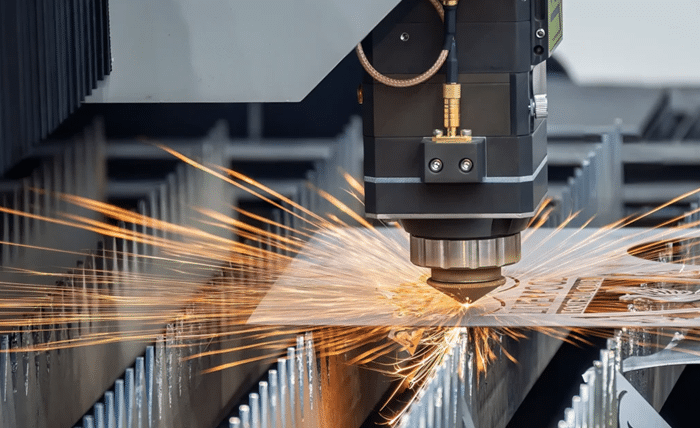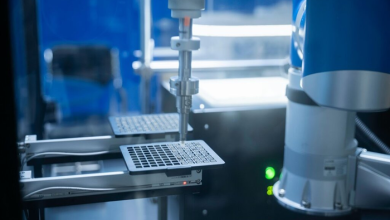
The industrial evolution currently sweeping through various sectors owes much of its progress to the developments within the domain of metal fabrication. Amongst the several techniques under this umbrella, custom metal casting stands out as a pivotal process fundamental to the creation of bespoke components that meet specific industrial needs. This process involves the pouring of molten metal into a pre-formed mould to produce intricately designed parts with high precision.
Understanding Custom Metal Casting
Custom metal casting is a specialised field that calls for a high level of expertise and technological know-how. It enables industries to acquire tailor-made solutions, transcending the limitations of off-the-shelf products. The process begins with the design and creation of a mould, which is often made from sand, ceramic, or metal, depending on the intended use and complexity of the component. This mould is a negative imprint of the final product, and its precision is paramount to the quality of the casted part.
The Process and Precision of Metal Casting
Molten metal is then poured into this mould and allowed to cool and solidify. The choice of metal – be it aluminium, bronze, iron, or any other alloy – depends on the desired properties of the final piece. Attention to detail during this stage is crucial, as even minor discrepancies can lead to flaws in the finished product. Hence, precision is not just a characteristic of custom metal casting; it is a prerequisite for excellence in the industry.
Industries Reliant on Custom Metal Casting
It is hard to find an industry that does not benefit from metal casting. The automotive sector, for instance, relies on it for components ranging from engine parts to intricate gearbox casings. In the field of construction, custom metal castings are used in the creation of durable structural supports and decorative elements. The healthcare sector utilises this process to manufacture medical devices and surgical equipment, where precision can be a matter of life and death.
Furthermore, the aerospace industry, which demands components that withstand extreme conditions while maintaining lightweight properties, frequently turns to metal casting for solutions. Custom cast parts are found in aircraft engines, landing gear assemblies, and cabin fixtures, demonstrating versatility and reliability.
Advantages of Custom Metal Casting
One of the key advantages of opting for custom metal casting lies in its ability to produce complex shapes that would otherwise be difficult or impossible to achieve through other fabrication methods. This secures its position as the go-to technique for producing non-standard components.
Additionally, the durability of cast metal parts is often superior to those fabricated by other means. This longevity is crucial in industries where the cost of failure can be exorbitant, not just in monetary terms but also in terms of safety and operational downtime.
Custom metal casting also provides the freedom to work with a wide range of metals, giving rise to an array of mechanical and thermal properties that can be tailored to the specific requirements of any application.
Technological Advancements in Metal Casting
The continuous improvement of technology has played a significant role in enhancing the precision and efficiency of the metal casting process. Modern techniques such as computer-aided design (CAD) and simulation software permit the creation of intricate and accurate moulds. Innovations like 3D printing have streamlined the production of prototype moulds, facilitating quicker turnaround times and lower costs for custom parts.
Innovation in Casting Methods
Beyond design, advancements in casting methods themselves, like investment casting and die casting, have expanded the possibilities for customisation and refinement. The selection of a casting method is typically informed by factors like production volume, metal type, and the complexity of the design. Skilled foundry workers and engineers collaborate to choose the method that best balances these factors, driving industry forward.
Sustainability in Metal Casting
With growing environmental concern, the metal casting industry is also making strides towards sustainability. Efforts to reduce waste and recycle materials are not only environmentally responsible but also economically beneficial. By re-melting and re-using scraps, the industry minimises its ecological footprint while also conserving valuable resources.
The Future of Metal Casting
As industries continue to advance, the demands for higher quality and more diverse metal parts are likely to rise. Custom metal casting, with its unmatched versatility and adaptability, will remain essential in meeting these needs and driving further innovation. Companies specialising in metal fabrication are poised to push boundaries, continually improving precision and efficiency to shape the future of various industries.
Customised metal components lie at the heart of so much of modern innovation. From the cars we drive to the planes that traverse our skies, the touch of custom metal casting is ubiquitous. It’s a craft that combines age-old techniques with modern technology to achieve feats of precision and design that were once the realm of imagination. Businesses seeking to capitalise on this potent combination of skill and science often turn to experts in the field to supply their custom metal casting needs, ensuring that their end products stand the test of time and efficiency.
In conclusion, custom metal casting not only shapes metal; it shapes industries. Its precision carves the path for future developments across a myriad of sectors, solidifying its status as an art form that moulds the framework of the industrial world. As we look to a future where innovation is ceaseless, the symbiosis between technology and skilled craftsmanship encapsulated in metal casting will undoubtedly continue to play a foundational role.




